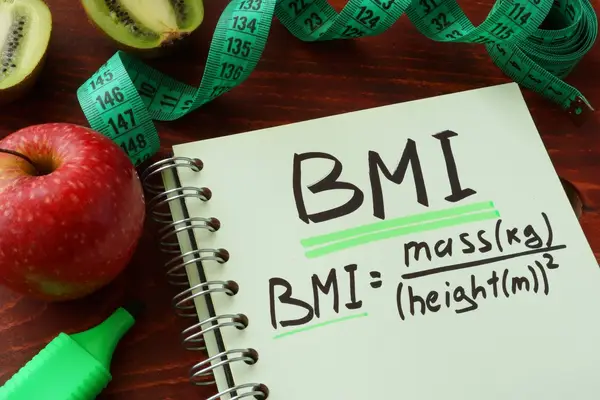Until recently, obesity was thought of as a lifestyle choice, but it’s actually a chronic, complex disease. And many people living with obesity need treatment options to help manage it.
By now, you’ve probably heard of anti-obesity medications (AOMs) on the news or by following Oprah on social media. These medications have been around for over a decade, but studies show the latest injectable versions (Wegovy and Zepbound) help people lose more weight than with lifestyle changes alone and help people manage their weight over time. This helps reduce the risk of serious health conditions, including heart disease — the number one killer of women in the U.S. — and Type 2 diabetes.
You may have heard people talking about Ozempic and Mounjaro as AOMs as well. However, these medicines, which share the same active ingredient as Wegovy and Zepbound respectively, are technically not AOMs. They’ve been FDA-approved to treat diabetes, but since weight loss is a common side effect, they are sometimes prescribed off-label for that purpose.
If you or someone you know is interested in taking an AOM, here’s what you need to know.
What are anti-obesity medications?
AOMs are drugs that help people with weight loss and weight management.
There are several AOMs approved by the FDA for long-term weight management. These include:
- Semaglutide (Brand names: Wegovy, Rybelsus)
- Tirzepatide (Brand name: Zepbound)
- Orlistat (Brand names: Alli, Xenical)
- Phentermine-topiramate (Brand name: Qsymia)
- Naltrexone-bupropion (Brand name: Contrave)
- Liraglutide (Brand names: Victoza and Saxenda)
- Setmelanotide (Brand name: Imcivree)
Short-term AOMs, like phentermine, may also be prescribed as part of an obesity disease management plan.
How do anti-obesity medications work?
Each AOM works differently to help promote weight loss and maintain a healthy weight. Some help you feel full even though you’re eating less or help you feel less hungry overall. For example, semaglutide acts like a hormone called glucagon-like peptide-1 (GLP-1), which helps slow digestion and signals to your brain that you’re full. This medication can be especially helpful for people who experience “food noise,” or obsessive thoughts about food that can lead to overeating.
AOMs can also make it more difficult for your body to absorb fat, which can lead to weight loss.
To find the right AOM for you, talk to your healthcare provider (HCP) about your medical history and what you should know, including how much it costs.
Read: Health Insurance 101: How to Choose Health Insurance When You’re Living with Obesity >>
Who can take anti-obesity medication?
You may be a candidate for an AOM if you’re living with a body mass index (BMI) of 27 or above and have at least one health condition related to your weight, like high blood pressure, Type 2 diabetes and obstructive sleep apnea.
It’s important to note that BMI is not a perfect measure of a person’s health, and not everyone with a higher BMI is right for an AOM. BMI is a screening tool and just one of the factors to consider before taking the medication.
Your body mass index is a measure of your body fat based on height and weight. Current CDC BMI guidelines:
BMI | Weight Status |
Below 18.5 | Underweight |
18.5 – 24.9 | Healthy Weight |
25.0 – 29.9 | Overweight |
30.0 and Above | Obesity |
How long does an anti-obesity medication take to work?
Most people see weight loss within three months of starting an AOM. Each person is different, but if you haven't lost weight after three months, talk to your HCP about trying a different medication.
Research shows that some people taking an AOM lose 10% or more of their starting weight during the first three months.And losing just 5% to 10% of your body weight can help lower blood pressure, blood sugar and improve health overall when living with obesity.What are the risks to taking an anti-obesity medication?
Research is ongoing regarding long-term effects of taking an AOM. But you may have side effects, which can vary from person to person.
The most common side effects of AOMs include:
- Nausea
- Diarrhea
- Vomiting
- Constipation
- Dizziness
- Insomnia
- Headache attacks
- Fatigue
How long do you have to stay on anti-obesity medication?
Since obesity is a lifelong chronic condition, AOMs are intended to be long-term medications, and you may need to stay on them for life. How long each individual person will need to stay on an AOM is a decision that you should make with your healthcare provider. Lots of people have been using these drugs to get ready for beach season, but that’s not their intended or approved use and has been creating shortages for people who really need them.
Can you take anti-obesity medications if you’re pregnant?
If you’re planning to get pregnant or if you are pregnant, you shouldn’t take an AOM because some drugs may harm the fetus. Some drug manufacturers recommend stopping an AOM at least two months before getting pregnant.
But there’s a twist: If you’re taking an AOM, you may be more likely to get pregnant. This may be happening for a few reasons including:
- Some AOMs make birth control pills less effective. If you’re taking a GLP-1 drug, the delayed digestion may affect your oral contraceptive. You can add protection with barrier methods like the ring, an IUD and condoms.
- Weight loss may help boost fertility. Research shows living with overweight or obesity can affect ovulation — releasing eggs — and regular periods, which affect your ability to get pregnant.
What else do you need to know about anti-obesity medications?
If you’re prescribed an AOM, your insurance may not cover the medication, so it’s important to check with your insurer before moving forward. Otherwise, you could be looking at a very expensive out-of-pocket fee per month. Talk to your HCP about the AOM that may be best for both your health and your budget overall.
- How to Talk About Obesity and Obesity-Related Insurance Coverage at Work ›
- Dear Employer: How to Ask for Obesity Care Insurance Coverage ›
- Does Your Health Insurance Cover Treatment for Obesity? ›
- What You Need to Know About Obesity ›
- Anti-Obesity Medication Stopped My Obsessive Thoughts About Food and Helped Me Become a Stronger Woman ›
- New Anti-Obesity Medications Are More Effective with Fewer Side Effects ›
- Why Are Obesity Treatments Hard to Get? - HealthyWomen ›
- Trying an Anti-Obesity Medication Changed My Life - HealthyWomen ›
- The Importance of Obesity Treatment - HealthyWomen ›
- Can Obesity Affect Brain Health? - HealthyWomen ›
- Is the BMI BS? - HealthyWomen ›
- Facts About Obesity - HealthyWomen ›
- Is Obesity a Disease? Yes. - HealthyWomen ›
- Can Semaglutide Prevent Alzheimer’s? - HealthyWomen ›







